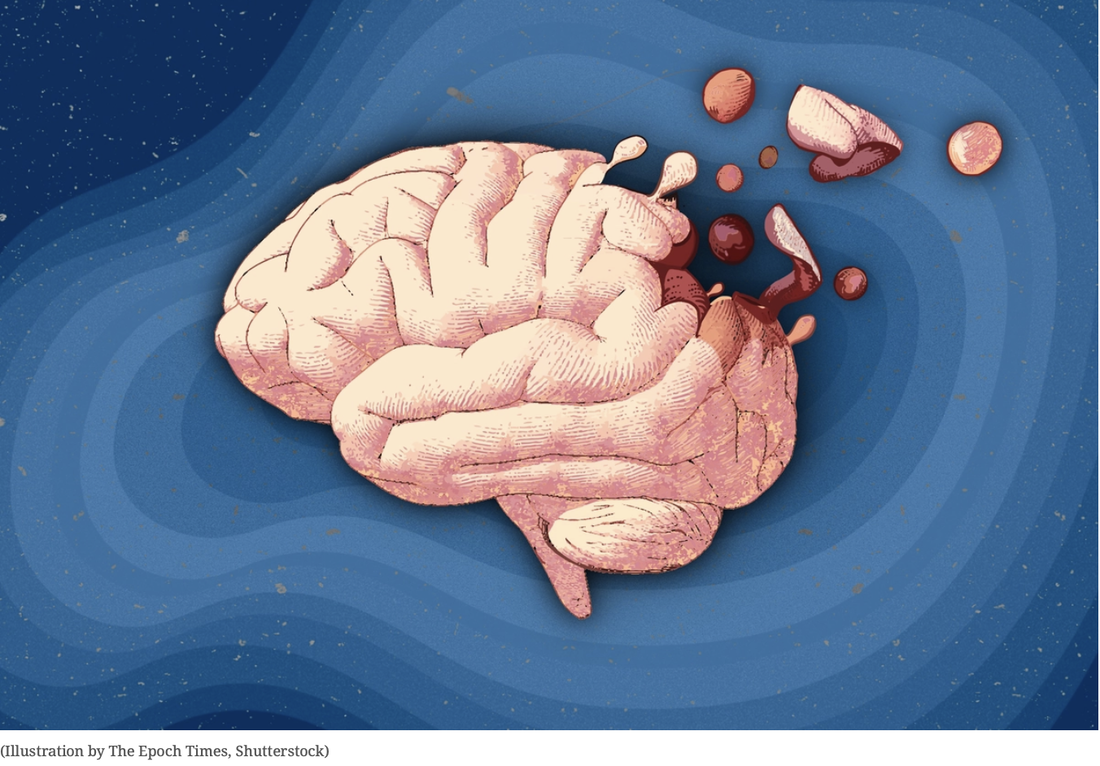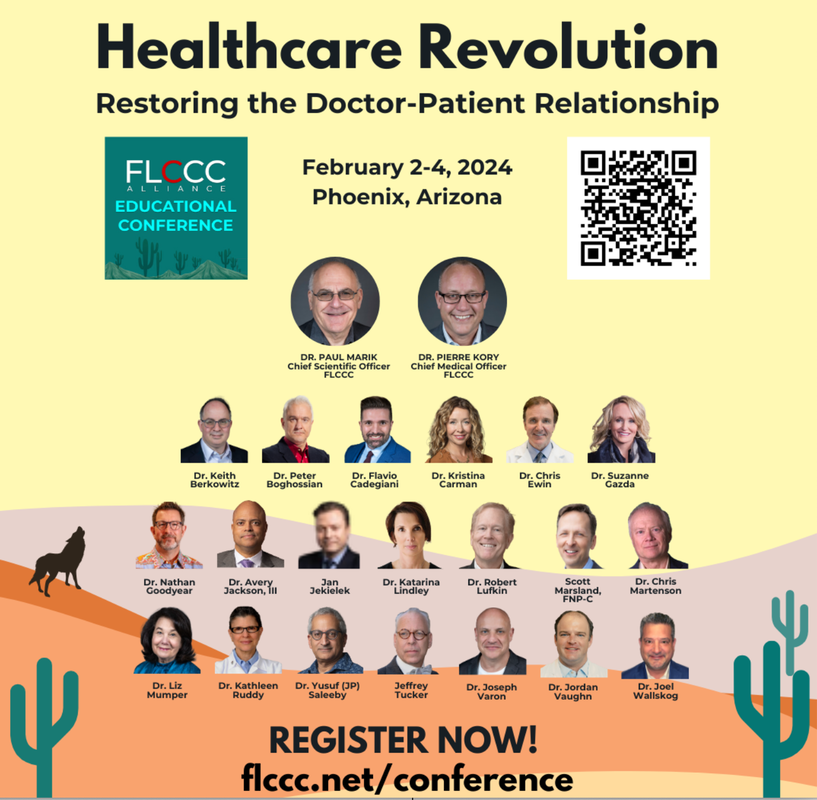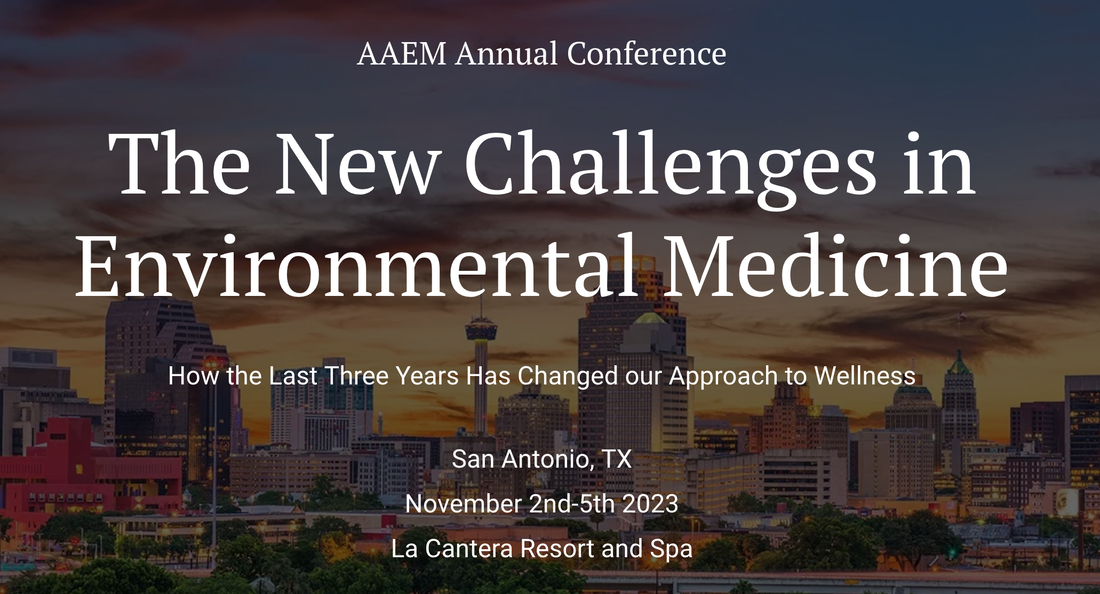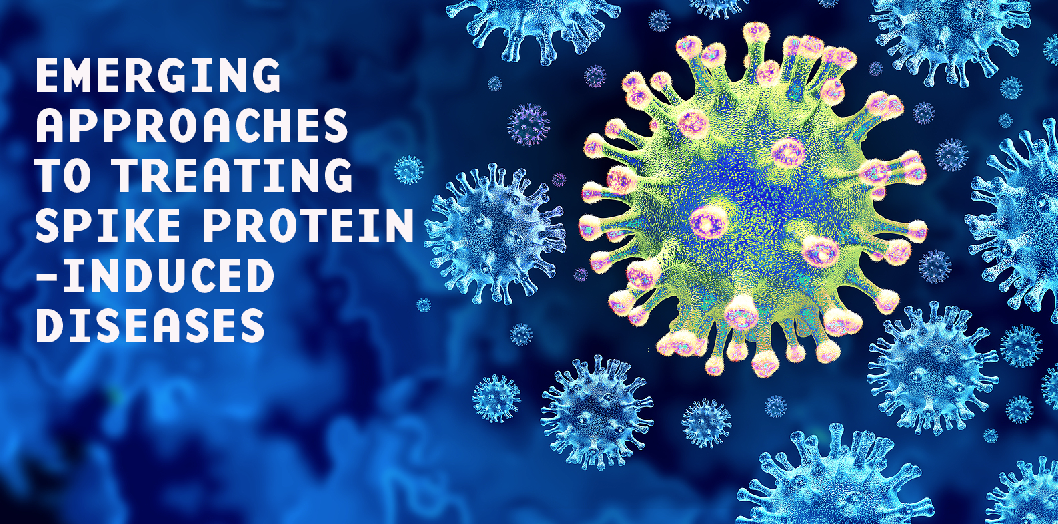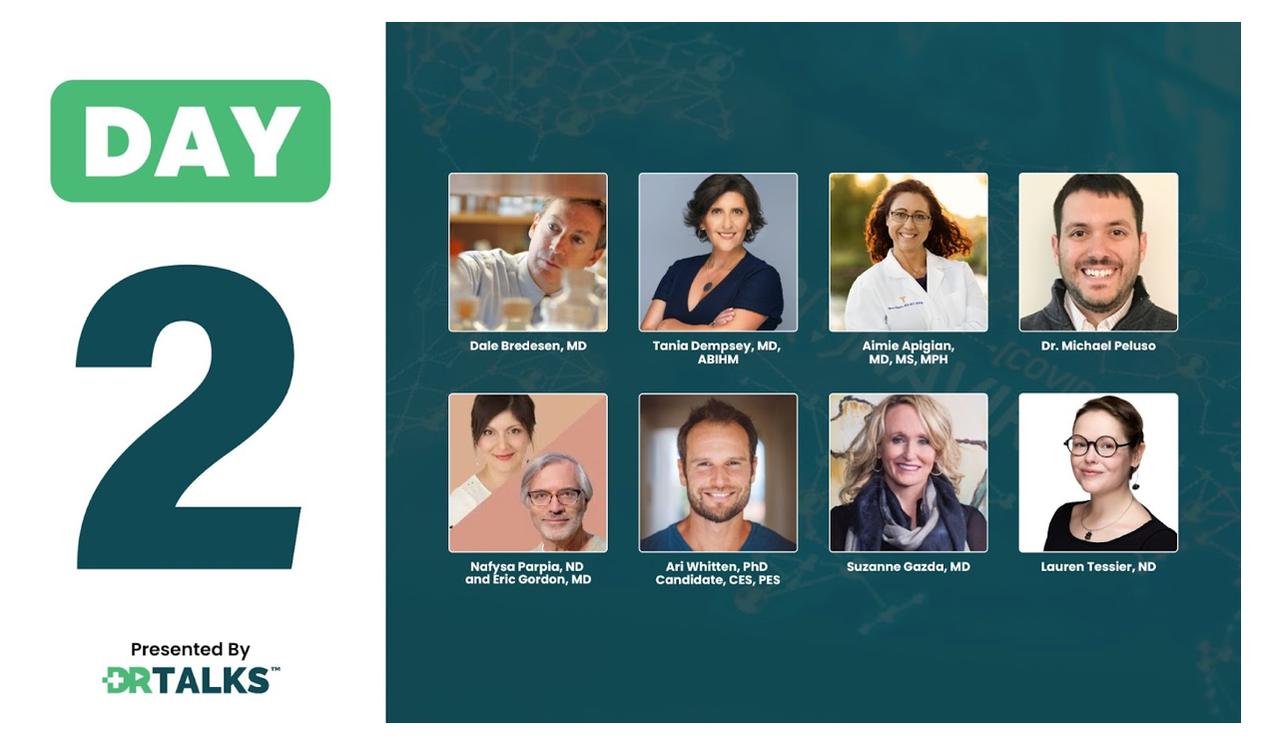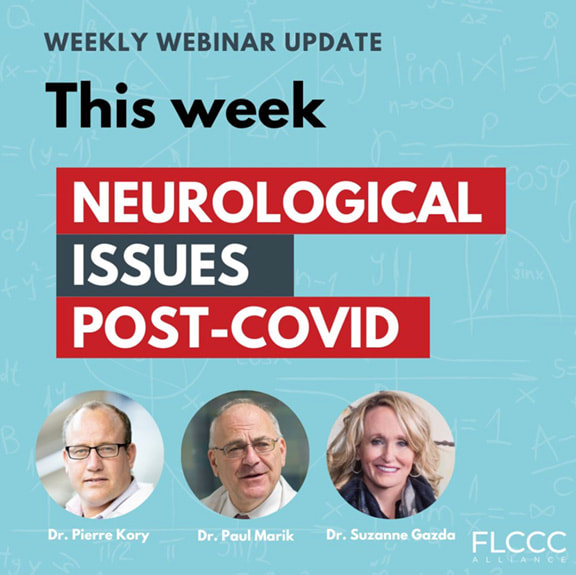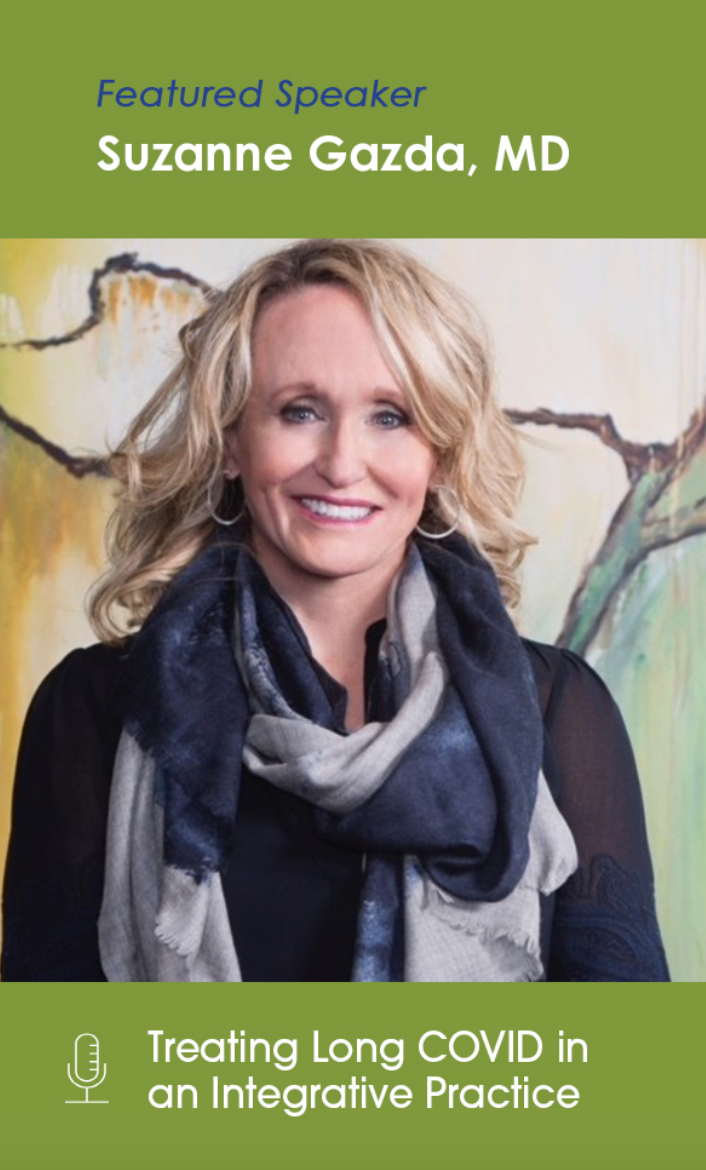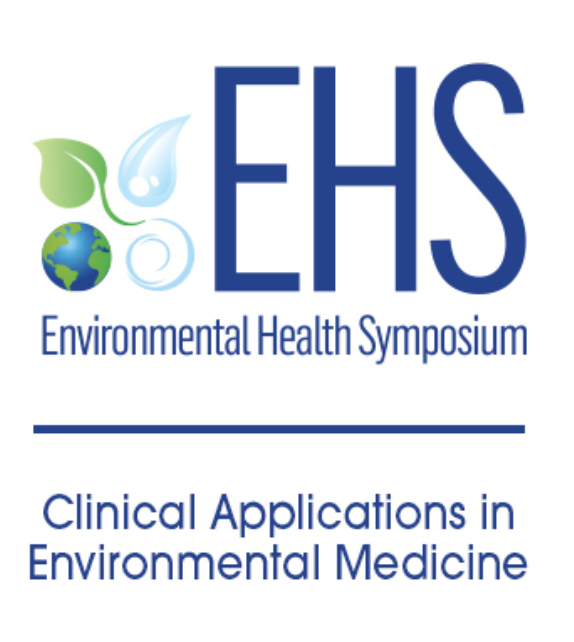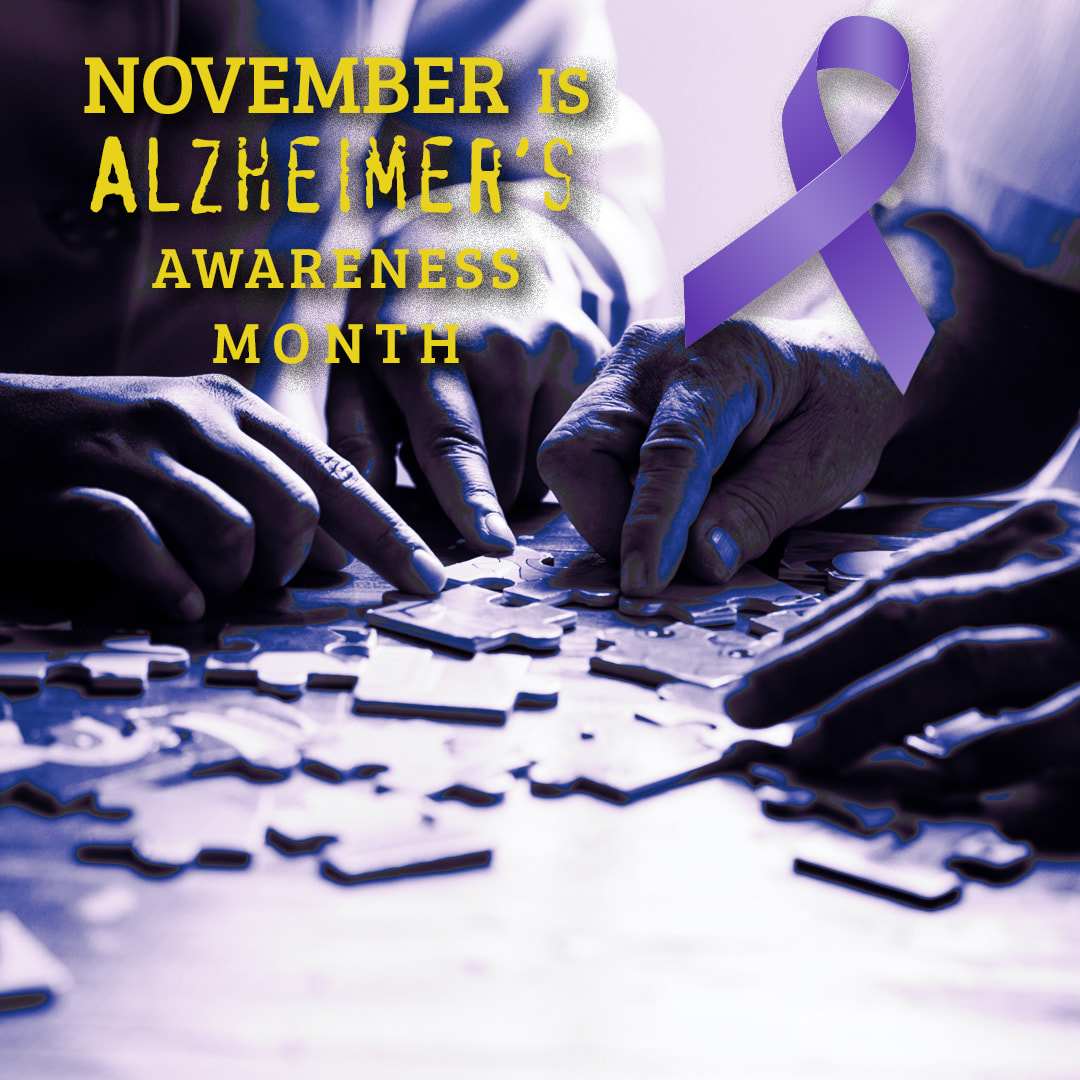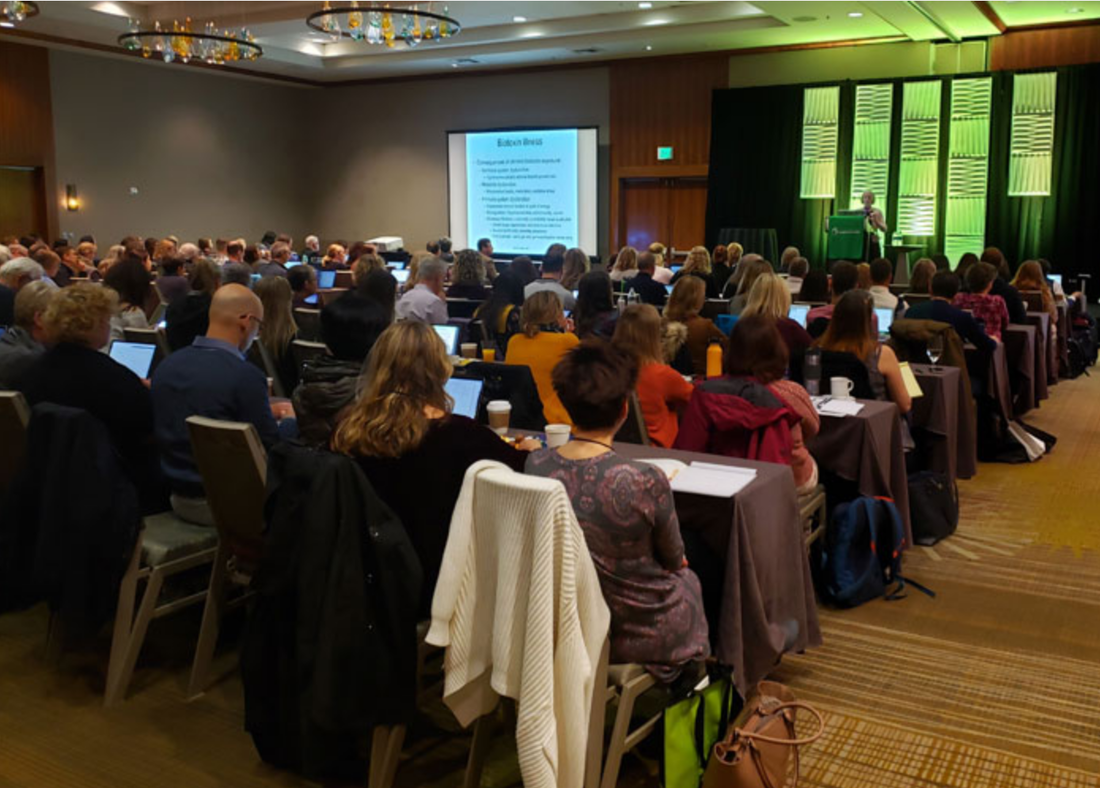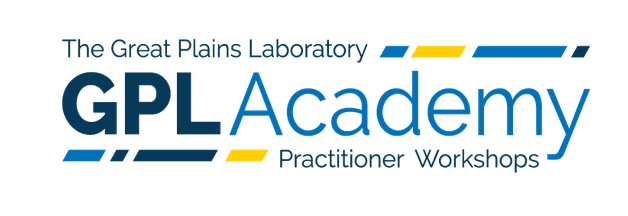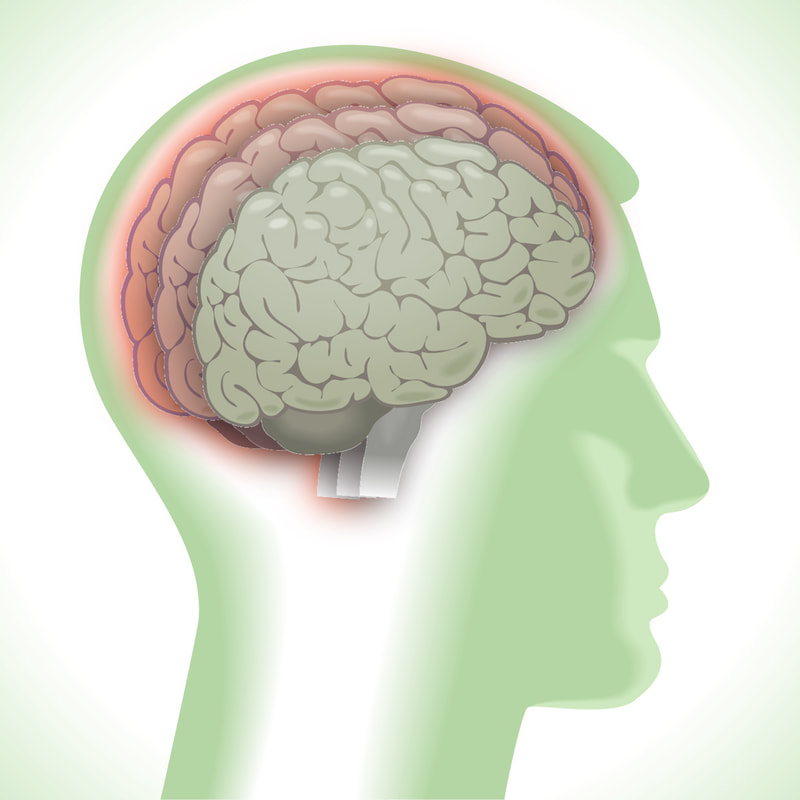How much screen time is too much? And at what point could these activities negatively impact our brain health – and our children’s brain health?
|
Health writer Marina Zhang explores in depth the many issues found with spending time on technology devices whether gaming, watching videos, scrolling social media, etc. From increased anxiety and irritability to inattention and depression, practitioners and educators are seeing more and more disorders in even very young children. So, how do we as caregivers break this cycle? It definitely starts with examining our own practices and making appropriate adjustments for the wellbeing of our children, their human relationships, and their futures.
Please take a few minutes to read this extremely important article – note that if you are not a current subscriber to the publication you may be asked to create a free account to read this piece and a select number of other articles. The Silent Epidemic Eating Americans' Minds |
Save the date for the third annual Front Line COVID-19 Critical Care Alliance (FLCCC) conference coming up in February 2024! Dr. Gazda is scheduled to speak on February 2nd, 9:15-10:15 am, about "Emerging Neurological Disorders – A Path to Solutions."
Early bird pricing is available now through January 2nd so please visit http://flccc.net/conference to register. And watch this space as well as our social media for more upcoming details - can't wait to see you in Arizona!
Early bird pricing is available now through January 2nd so please visit http://flccc.net/conference to register. And watch this space as well as our social media for more upcoming details - can't wait to see you in Arizona!
Bracing for the Tidal Wave of Neuro-Cognitive Impacts of Long COVID
and Post Vaccine Injury
Suzanne Gazda MD
Saturday, November 4: • 8:00 AM - 9:00 AM
Saturday, November 4: • 8:00 AM - 9:00 AM
|
American Academy of Environmental Medicine 2023 Conference
November 3-5, La Cantera Resort, San Antonio "New Challenges in Environmental Medicine - How the last 3 years has changed our approach to wellness." Registration open now: https://www.aaemonline.org/aaem-annual-conference-2023/ |
|
Dr. Gazda joins Frontline COVID-19 Critical Care Alliance colleagues in discussing the latest approaches in Alzheimer's disease treatment.
https://covid19criticalcare.com/preventing-and-treating-alzheimers-disease/ |
Five ways to optimize your aging brain
|
Simple ways to reduce stress and improve brain function
This blog originally appeared on The FLCCC Alliance Community, substack.com
|

The V Symposium – Essential Support for Injury and Exposure
Presented by GMO Science
Dr. Suzanne Gazda will be part of a virtual webinar featuring top doctors, practitioners, and researchers presenting their insight toward helping people recover and heal from vaccine injury and exposure.
Virtual webinar schedule:
April 1, 2023 12:00pm noon – 3:00 pm PST
April 2, 2023 12:00pm noon – 3:00 pm PST
(Event session recordings will be available for two weeks after the event)
For full speaker and event information and to register visit:
https://gmoscience.org/v-symposium/
On Saturday, April 1 at 1 pm PST, Dr. Gazda will discuss “Neurologic Injury and Recovery,” including her patient-friendly treatment protocols that address post-vaccine brain impacts.
There will be multiple Q&A opportunities throughout the two-day event to address important concerns such as:
* If you were not vaccinated, how can you protect your long-term health from exposure to possible shedding from loved ones who have been vaccinated?
* If you have been vaccinated, what can you do now to minimize any potential long-term adverse effects?
*If you have been vaccinated and have been injured, how can you regain your health?
Registration for the 2-day event is $99.00 and all sales are final. This event is a tax-deductible fundraiser for gmoscience.org, a registered 501c3 organization founded by doctors, lawyers, and scientists to provide education regarding the impacts of GMOs with a lens on health.
Presented by GMO Science
Dr. Suzanne Gazda will be part of a virtual webinar featuring top doctors, practitioners, and researchers presenting their insight toward helping people recover and heal from vaccine injury and exposure.
Virtual webinar schedule:
April 1, 2023 12:00pm noon – 3:00 pm PST
April 2, 2023 12:00pm noon – 3:00 pm PST
(Event session recordings will be available for two weeks after the event)
For full speaker and event information and to register visit:
https://gmoscience.org/v-symposium/
On Saturday, April 1 at 1 pm PST, Dr. Gazda will discuss “Neurologic Injury and Recovery,” including her patient-friendly treatment protocols that address post-vaccine brain impacts.
There will be multiple Q&A opportunities throughout the two-day event to address important concerns such as:
* If you were not vaccinated, how can you protect your long-term health from exposure to possible shedding from loved ones who have been vaccinated?
* If you have been vaccinated, what can you do now to minimize any potential long-term adverse effects?
*If you have been vaccinated and have been injured, how can you regain your health?
Registration for the 2-day event is $99.00 and all sales are final. This event is a tax-deductible fundraiser for gmoscience.org, a registered 501c3 organization founded by doctors, lawyers, and scientists to provide education regarding the impacts of GMOs with a lens on health.
|
APRIL 28-29, 2023 | DALLAS/FORT WORTH, TEXAS
|
FLCCC’s second educational conference, ‘Emerging Approaches to Treating Spike Protein-Induced Diseases’, will feature leading experts from a variety of fields, including cardiology, pediatrics, neurology, integrative medicine, and many others.
Dr. Gazda will present a lecture, "Brain fog and cognitive disorders in the vaccine injured," on Saturday, April 29th, 9 am to 1 pm. For more information and to register see: https://covid19criticalcare.com/conference/ |
Inflammation and Neurological Disease: A conversation with Dr. Suzanne Gazda and MindHealth360
In this in-depth interview with Kirkland "Kiki" Newman, founder of MindHealth360, Dr. Gazda focuses on how to diagnose and treat the biological and environmental contributors of neurological disorders and psychiatric conditions rather than just treating their symptoms. She also looks at the impact of increased inflammation as it contributes to virtually every disorder, including long COVID, and how we can address these factors going forward.
Watch here or tune into the podcast now at https://www.mindhealth360.com/podcast/chronic-inflammation-driving-mental-illness/
|
Overcoming Long Haul & Chronic Fatigue Syndrome Summit
Join us this evening for Day 2 of the Overcoming Long Haul & Chronic Fatigue Syndrome Summit presented by DrTalks!! Dr. Gazda's discussion will air Wednesday, February 8th, and all summit presentations will be available online FREE from February 7-14, 2023.
Register for tonight's presentation at: https://drtalks.com/long-haul-syndrome-summit/ |
|
This Wednesday’s webinar, ‘Neurological Issues Post-COVID’ will feature a special guest, Dr. Suzanne Gazda.
Wednesday, August 31 7PM ET. Register now at:
|
New post-vaccine I-RECOVER protocol introduced by FLCCC team.

The Frontline COVID-19 Critical Care (FLCCC) Alliance has recently announced details of its updated therapeutic approaches, joining the group’s long COVID treatment program. The newly introduced I-RECOVER post-vaccine protocol was developed after extensive study to address resulting issues described as “a temporal correlation between a patient receiving a COVID-19 vaccine and beginning or worsening of clinical manifestations is sufficient to diagnose as a COVID-19 vaccine-induced injury when the symptoms are unexplained by other concurrent causes.”1 It is advised that the protocol be employed by clinicians who have experience in treating this and long COVID syndrome.
The FLCCC team makes the distinction between what appear to be similarly overlapping symptoms associated with long COVID and post-vaccine issues with the latter condition reflecting more severe neurological impacts. As such, Dr. Gazda has contributed to the work of FLCCC clinicians who are committed to making a difference in the lives of patients who have become injured after the COVID vaccinations, having begun treating affected patients since early 2021. She noted that “When you see the problems first hand there is no denying the reality of the injuries for these patients who have |
serious neurological issues. Oftentimes they have seen many different doctors, been to the emergency room multiple times, and left with no answers. People have lost hope and, as I havealways said, without hope none of us could survive. Dr. Paul Marik, one of the founders of the FLCCC has called this 'a humanitarian crisis,’ but in learning more every day, we believe that hope has arrived.”
Individuals can learn more about the protocol in detail at: https://covid19criticalcare.com/wp-content/uploads/2022/05/An-Approach-to-Vac-Injured-FINAL-May24-1.pdf You may also visit the FLCCC website for more about “How our thinking on vaccines has evolved”: https://flccc.substack.com/p/how-our-thinking-on-vaccines-has?s=w If you have questions or would like to schedule a visit, please reach out to Dr. Gazda’s offices for assistance. 1 FLCCC Alliance, I-RECOVER Protocol https://covid19criticalcare.com/covid-19-protocols/i-recover-post-vaccine-treatment/ |
|
Environmental Health Symposium 2022
April 8-10, 2022 Dr. Suzanne Gazda Presenter, April 8th 12:30-1:30 PM (Pacific Time) “Treating Long Covid in an Integrative Practice” With the perfect storm of COVID-19 and environmental toxicant exposure, it has never been more important to understand these two colliding forces and how immune resilience, or lack of it, determines patient outcomes.
With up to 16 hours of Continuing Education, the symposium will focus on a range of clinically relevant topics related to today’s challenging patient environment: COVID-19 “Long-Haul” (Post-Acute Sequelae COVID19), vaccine injury, cardiovascular complications of COVID-19, chronic mold exposure, the role of hormones in treating environmental illness, patients with glyphosate exposure, the role of CBD in toxicant exposure, toxicants in kidney disease, and a breaking update on evaluating exposure to the number one toxicant in the US - arsenic. Register now for the upcoming EHS 2022 conference, to be held at the Loews Ventana Canyon Resort in Tucson, Arizona (in-person event only). Visit https://www.environmentalhealthsymposium.com/ for full details, schedule, and registration information. |
Celebrating Caregivers!November is also National Family Caregivers Month, a time to recognize the millions of dedicated individuals who give their time and efforts to care for so many patients and loved ones. While every day is a time to appreciate the caregiver community, this is a great opportunity to raise awareness of caregiving issues, inform, and increase support for caregivers. The estimated cost of unpaid caregiver time provided by family and friends is in the BILLIONS. So let's all honor a caregiver this and every month and do something wonderful to say thank you for all they do!
|
It's National Alzheimer's Disease Awareness Month.This annual event is designed to bring more awareness of this devastating diagnosis that as of 2020 is estimated to affect nearly six million Americans and their families. Many of us know or are directly related to someone who is suffering with the neurological condition for which more research and more treatment options are needed. There are many organizations who serve the Alzheimer's community so consult a group in your area if you need assistance. And if you can, consider volunteering or supporting these important efforts through your time or donations or by participating in a fundraising run or walk so together we can hope to one day find a cure.
Check out our Helpful Links section for more resources. |
September 9, 2021 | Texas
Dr. Suzanne Gazda joins 12 co-appointees to continue their work on the PANS Council

Governor Greg Abbott has reappointed thirteen members to the Pediatric Acute-Onset Neuropsychiatric Syndrome (PANS) Advisory Council. The council advises the commission and the legislature on research, diagnosis, treatment, and education related to pediatric acute-onset neuropsychiatric syndrome.
Dr. Gazda is extremely proud to once again be part of this much-needed effort to support all those who are affected by the devastating diagnoses of PANS as well Pediatric Autoimmune Neuropsychiatric Disorders Associated with |
Streptococcal Infections (PANDAS). The committee’s focus this year will expand upon the foundational activities established in 2020 as they work toward eliminating the barriers to treatments that impact patients and their families.
For more details regarding the announcement and the appointees see: https://gov.texas.gov/news/post/governor-abbott-reappoints-thirteen-to-pediatric-acute-onset-neuropsychiatric-syndrome-advisory-council |
UPCOMING EVENT
|
For more information please visit: https://forumforintegrativemedicine.org/
|
The Forum for Integrative Medicine (TFIM) Conference:
Navigating recovering in complex, chronic illness. Online – March 5-7, 2021 Hosted by TFIM “Unraveling the Mysteries of Neurodegenerative Disease Through the Lens of Functional Neurology” Presented by Dr. Suzanne Gazda March 6th at 8:00 am – 9:15 am PT / 11:00 am – 12:15 pm ET |
UPCOMING EVENTDr. Gazda is often asked to speak at various professional events and is scheduled to participate in the following:
OAT+TOX Workshop (Organic Acids Testing and Environmental Toxin Testing) Live online - January 29 & 30, 2021 Hosted by Great Plains Laboratory “The Neurological Effects of Mold and a Look into Integrative Neurology” Presented by Dr. Suzanne Gazda • January 30th at 10:15 am PST/11:15 am MST/12:15 pm CST/1:15 pm EST |
For more information please visit: https://www.gplworkshops.com/upcoming-workshops
|
New study finds that sleep patterns may forecast when Alzheimer’s disease begins.
Scientists have known – and we’ve continued to reinforce the knowledge - that shorter periods of quality sleep are linked to the initiation of serious health events including stroke and cardiovascular disease. There also is mounting evidence that sleep deprivation leads to a higher risk of obesity and Alzheimer’s disease (AD). Large population studies reflect a serious and sad truth—the shorter your sleep, the shorter your life span. And the quality of your waking hours is negatively impacted as well when you are simply too tired to function at your best.
|
The “Brain Drain.”
Sleep is designed to clear the brain of the potential neurotoxic waste products that accumulate during our waking hours. This brain waste removal is driven by cerebrospinal fluid transport, the pathway known as the glymphatic system.1 Therefore, sleep is neuroprotective for the brain.
During sleep, our brain is very busy; for example, the microglial cells help remove the toxic protein beta-amyloid while the astrocytes prune away unnecessary synapses and repair the brain’s neural wiring. However, the same process is activated when the body is deprived of sleep…BUT, instead of only attacking toxins, microglial cells and astrocytes begin attacking healthy, functioning tissues.
The study: sleep may be a biomarker for Alzheimer's prediction.
In this recent study from Berkley, the investigating team looked at the buildup of amyloid plaques on positron emission tomography (PET) scans and correlated the changes with the quality of people’s sleep. Amyloid-β (Aβ) is a metabolic by-product whose aggregation into amyloid plaques is implicated in neurodegenerative processes.
Study participants who started out experiencing more fragmented sleep and less non-rapid eye movement (non-REM), slow-wave sleep were most likely to show an increase in beta-amyloid over the course of the study. The implication is that sleep may be an indicator of disease and further research is needed to determine if sleep may also “represent a possible preventative and therapeutic target in modulating risk for AD and/or delaying the onset of AD symptoms.”2
Between 25 and 60% of patients with AD present with dysfunctional sleep, but the association between AD and sleep is bidirectional: not only does dysfunctional sleep contribute to the AD phenotype, but Aβ deposition itself leads to sleep disturbances. My previous blog talks about the frequency of sleep disordered breathing (SDB) in AD:
https://www.suzannegazdamd.com/blog/sleep-and-brain-health-can-sleep-disordered-breathing-contribute-to-ad
Most of us recognize that sleep is critical to our health and wellbeing as well as our productivity levels - and the influences of poor quality sleep as a societal problem, from educational success to things like safety - are truly concerning from so many perspectives. For some tips on how to sleep better, you’ll find some of our recommendations at:
https://www.suzannegazdamd.com/blog/a-well-spent-day-brings-happy-sleep-leonardo-da-vinci
https://www.suzannegazdamd.com/blog/your-brains-wellbeing-starts-with-sleeping-well
Remember that we learn when we dream as our vivid dreams shape our memories – so we wish you sweet dreams every night and a reminder not to wait to talk to your health care provider if sleeping poorly becomes a regular occurrence!
In health and healing,
Dr. Suzanne Gazda
References:
1 Haugland, N.L., Pavan, C., Nedergaard, N. Cleaning the sleeping brain – the potential restorative function of the glymphatic system. Current Opinion in Physiology. (June 2020)
https://www.sciencedirect.com/science/article/pii/S2468867319301609
https://doi.org/10.1016/j.cophys.2019.10.020
2 Winer, J.R., Mander, B.A., Kumar, S. et al. Sleep Disturbance Forecasts β-Amyloid Accumulation across Subsequent Years. Published online Current Biology. September 3, 2020. https://doi.org/10.1016/j.cub.2020.08.017
Sleep is designed to clear the brain of the potential neurotoxic waste products that accumulate during our waking hours. This brain waste removal is driven by cerebrospinal fluid transport, the pathway known as the glymphatic system.1 Therefore, sleep is neuroprotective for the brain.
During sleep, our brain is very busy; for example, the microglial cells help remove the toxic protein beta-amyloid while the astrocytes prune away unnecessary synapses and repair the brain’s neural wiring. However, the same process is activated when the body is deprived of sleep…BUT, instead of only attacking toxins, microglial cells and astrocytes begin attacking healthy, functioning tissues.
The study: sleep may be a biomarker for Alzheimer's prediction.
In this recent study from Berkley, the investigating team looked at the buildup of amyloid plaques on positron emission tomography (PET) scans and correlated the changes with the quality of people’s sleep. Amyloid-β (Aβ) is a metabolic by-product whose aggregation into amyloid plaques is implicated in neurodegenerative processes.
Study participants who started out experiencing more fragmented sleep and less non-rapid eye movement (non-REM), slow-wave sleep were most likely to show an increase in beta-amyloid over the course of the study. The implication is that sleep may be an indicator of disease and further research is needed to determine if sleep may also “represent a possible preventative and therapeutic target in modulating risk for AD and/or delaying the onset of AD symptoms.”2
Between 25 and 60% of patients with AD present with dysfunctional sleep, but the association between AD and sleep is bidirectional: not only does dysfunctional sleep contribute to the AD phenotype, but Aβ deposition itself leads to sleep disturbances. My previous blog talks about the frequency of sleep disordered breathing (SDB) in AD:
https://www.suzannegazdamd.com/blog/sleep-and-brain-health-can-sleep-disordered-breathing-contribute-to-ad
Most of us recognize that sleep is critical to our health and wellbeing as well as our productivity levels - and the influences of poor quality sleep as a societal problem, from educational success to things like safety - are truly concerning from so many perspectives. For some tips on how to sleep better, you’ll find some of our recommendations at:
https://www.suzannegazdamd.com/blog/a-well-spent-day-brings-happy-sleep-leonardo-da-vinci
https://www.suzannegazdamd.com/blog/your-brains-wellbeing-starts-with-sleeping-well
Remember that we learn when we dream as our vivid dreams shape our memories – so we wish you sweet dreams every night and a reminder not to wait to talk to your health care provider if sleeping poorly becomes a regular occurrence!
In health and healing,
Dr. Suzanne Gazda
References:
1 Haugland, N.L., Pavan, C., Nedergaard, N. Cleaning the sleeping brain – the potential restorative function of the glymphatic system. Current Opinion in Physiology. (June 2020)
https://www.sciencedirect.com/science/article/pii/S2468867319301609
https://doi.org/10.1016/j.cophys.2019.10.020
2 Winer, J.R., Mander, B.A., Kumar, S. et al. Sleep Disturbance Forecasts β-Amyloid Accumulation across Subsequent Years. Published online Current Biology. September 3, 2020. https://doi.org/10.1016/j.cub.2020.08.017
September 25, 2020 | Mooresville, North Carolina
Pioneer in PANS and PANDAS studies awarded new research grant.
|
The PANS and PANDAS Physicians Network (PPN) has recently announced the award of a grant to Dr. Madeline Cunningham to pursue research to identify one or more biomarkers for PANS/PANDAS (and Sydenham Chorea). Biomarkers are objective and observable indications of medical state that can be measured accurately and reproducibly.
According to the PPN announcement, (https://www.pandasppn.org/research-announcement-2020/) “This grant is part of PPN’s ongoing effort to support research that shows significant promise in the identification, treatment and understanding of PANS/PANDAS” and will aid in improving diagnostic measures for these conditions through the use of one or more biomarkers (rather than by a diagnosis of exclusion). A George Lynn Cross Research Professor and Presbyterian Health Foundation Presidential Professor, Dr. Cunningham is a world-renowned leader in PANS and PANDAS clinical research. In 2013 she co-founded with Dr. Craig Shimsaki the life science company, Moleculera Labs, through which The Cunningham Panel™ was introduced to provide laboratory results that assist physicians in diagnosing infection-induced autoimmune neuropsychiatric disorders. The Cunningham Panel is now widely used by hundreds of hospitals and physicians in North America and other locales around the world. Dr. Cunningham has been involved in the investigation of molecular mimicry, autoimmunity and infection in inflammatory heart disease for the past 20 years. Her extensive efforts also include multiple clinical studies for PANDAS as well as Sydenham’s chorea and rheumatic fever, working side-by-side with other notable university and institutional scientists. |
You can learn more about the attributes of The Cunningham Panel at our previous blog https://www.suzannegazdamd.com/blog/new-study-highlights-the-value-of-the-cunningham-panel-in-pans-and-pandas-diagnoses.
Congratulations to Dr. Cunningham on this research award and for always being a champion on behalf of so many children - this is such important work that will undoubtedly result in further elaborating the current insights and understanding aBout PANS and PANDAS. Additional reading and resources: The Cunningham Panel https://www.moleculeralabs.com/cunningham-panel-pandas-pans-testing/ PANS and PANDAS articles https://www.suzannegazdamd.com/blog/new-research-moves-pans-and-pandas-out-of-the-shadows-of-mental-illness https://www.suzannegazdamd.com/blog/in-the-news-exciting-research-findings-about-to-ae-pans-and-pandas |
|
September 2020 | IRCCS San Raffaele Scientific Institute, Italy
Research spotlights modifying cardiovascular risks can improve MS outcomes.
Interesting news arose out of the MSVirtual2020 conference held this month where Raffello Bonacchi, MD, Institute of Experimental Neurology, presented an abstract revealing findings from a recent study that investigated the impact of cardiovascular risk factors on brain atrophy in patients with multiple sclerosis under the age of 50.
Conclusions indicate that the “presence of CV risk factors is associated with brain atrophy in MS patients, even under age 50. CV risk factors seem to have synergistic effects, determining brain atrophy even for levels of exposure that may often be overlooked by clinicians, when present in combination.”1 |
In this particular study MS patients with at least two traditional cardiovascular risk factors had significantly lower total brain volume and grey and white matter volume than those without this type of exposure. Risk factors included having smoked five or more pack-years,* hypertension, high levels of fat molecules in the blood (dyslipidemia), and diabetes or prediabetes.
*A pack-year is a measure of how much a person has smoked over a period of time calculated by the number of packs of cigarettes smoked per day multiplied by the number of years the person has smoked.
This new abstract reflects closely information about which we also have written regarding vascular influence in multiple sclerosis and why individuals with MS and these cardiovascular comorbidities often die significantly earlier than the general population. Together with the loss of myelin and glial proliferation, the perivascular infiltration and endothelial damage have been described as histological findings in the brain tissue of patients with MS.
In order to best help our MS patients, we need to be doing much more than just prescribing a MS drug alone. Each patient has their own unique disease and as such their care plans must be equally individualized. This is why some MS drugs work for one person, but not for another and certainly why we see disease progression over time despite aggressive MS disease-modifying therapies. It’s also why in integrative medicine that we look closely at patient lifestyles, any underlying health conditions and other risk factors that may be modifiable in order to reduce risks as well as inflammation. This study offers exciting new insight regarding these issues and certainly warrants further research that can ideally improve outcomes for more people.
1 For more information regarding the abstract, “Cardiovascular risk factors affect brain volume in young MS patients” see https://cslide.ctimeetingtech.com/msdc2020/attendee/person/2332
Presenter: Bonacchi, R. MD; Authors: Mistri, D., Meani, A., Zanghi, A., Filippi, M., Rocha, M.
*A pack-year is a measure of how much a person has smoked over a period of time calculated by the number of packs of cigarettes smoked per day multiplied by the number of years the person has smoked.
This new abstract reflects closely information about which we also have written regarding vascular influence in multiple sclerosis and why individuals with MS and these cardiovascular comorbidities often die significantly earlier than the general population. Together with the loss of myelin and glial proliferation, the perivascular infiltration and endothelial damage have been described as histological findings in the brain tissue of patients with MS.
In order to best help our MS patients, we need to be doing much more than just prescribing a MS drug alone. Each patient has their own unique disease and as such their care plans must be equally individualized. This is why some MS drugs work for one person, but not for another and certainly why we see disease progression over time despite aggressive MS disease-modifying therapies. It’s also why in integrative medicine that we look closely at patient lifestyles, any underlying health conditions and other risk factors that may be modifiable in order to reduce risks as well as inflammation. This study offers exciting new insight regarding these issues and certainly warrants further research that can ideally improve outcomes for more people.
1 For more information regarding the abstract, “Cardiovascular risk factors affect brain volume in young MS patients” see https://cslide.ctimeetingtech.com/msdc2020/attendee/person/2332
Presenter: Bonacchi, R. MD; Authors: Mistri, D., Meani, A., Zanghi, A., Filippi, M., Rocha, M.
Join me for the Toxic Mold Summit!
|
▪ NeuroQuant®, which is an FDA-approved MRI that can provide a more in-depth look at the different brain regions and structural volume that goes well beyond the information derived from standard MRI technology.
With the current concerns regarding respiratory disorders and immune defenses, The Toxic Mold Summit will provide an extensive range of useful information in an easy-to-attend forum. To register now for Dr. Gazda’s event just visit: https://toxicmoldproject.com/?idev_id=29365 Let us know if you have questions or need any additional information and be sure to follow us on social media for event and time updates as well as related news! |
|
April 13, 2020 | Texas
Dr. Gazda was appointed by Texas Governor Greg Abbott to serve on the State’s 14-member Pediatric Acute-Onset Neuropsychiatric Syndrome Advisory Council. The council will advise the commission and the legislature on research, diagnosis, treatment, and education related to pediatric acute-onset neuropsychiatric syndrome and related disorders (PANS/PANDAS). Read more about this latest recognition at: https://gov.texas.gov/news/post/governor-abbott-appoints-fourteen-to-pediatric-acute-onset-neuropsychiatric-syndrome-advisory-council |
